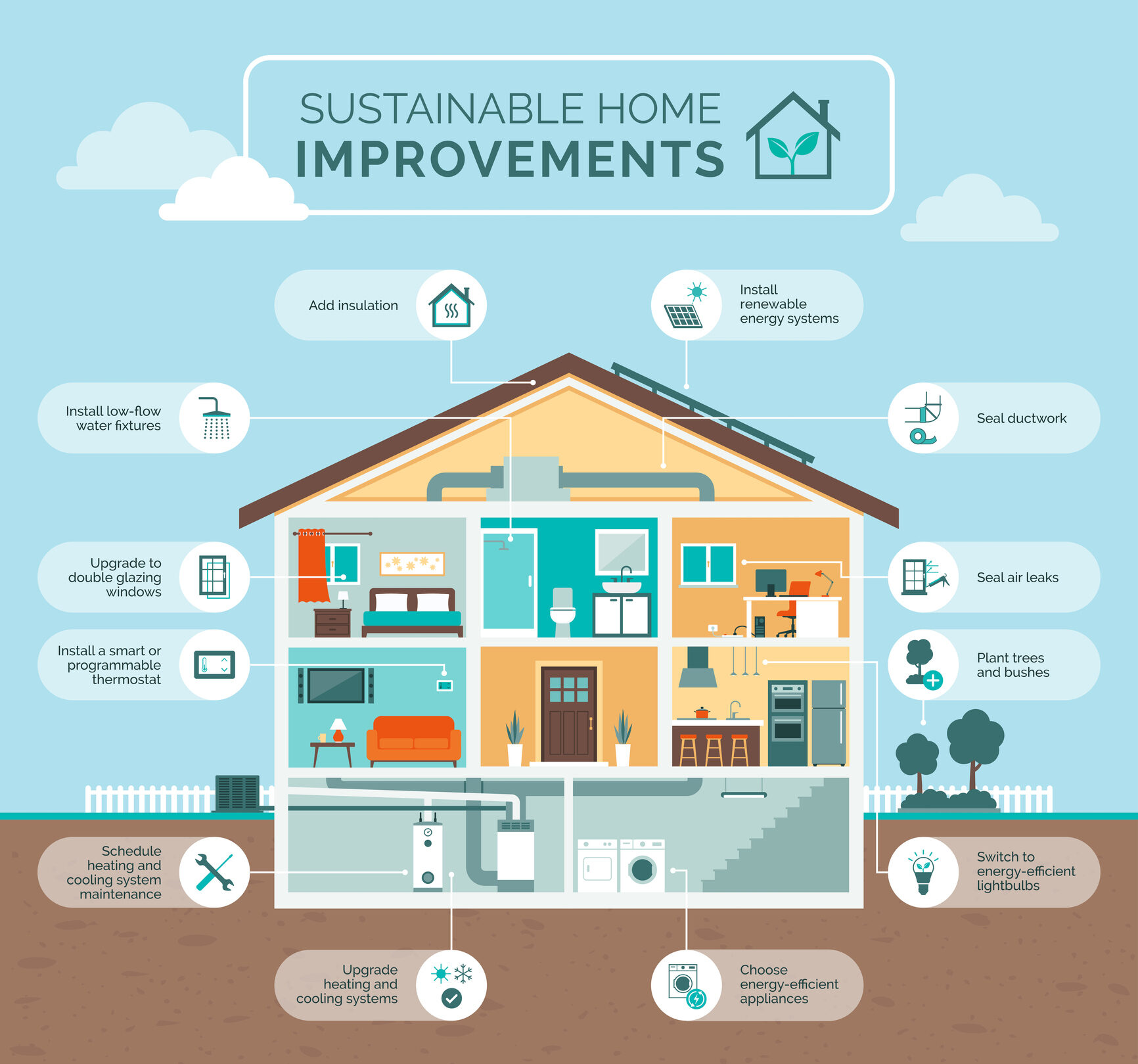When it comes to keeping your home comfortable, your HVAC system plays a crucial role. However, inefficient HVAC systems can lead to high energy bills and reduced comfort. In this guide, we’ll discuss practical tips for improving energy efficiency in HVAC systems, helping you save money and reduce your carbon footprint.
Regular Maintenance:
One of the most effective ways to improve energy efficiency in HVAC systems is by scheduling regular maintenance.
Simple tasks such as cleaning or replacing air filters can improve airflow and efficiency.
Scheduling annual maintenance with a professional HVAC technician can identify and address any issues before they become major problems.
Programmable Thermostat:
Installing a programmable thermostat allows you to set temperature schedules based on your daily routine.
By automatically adjusting the temperature when you’re away or asleep, you can reduce energy usage without sacrificing comfort.
Some thermostats even have smart features that learn your preferences and adjust accordingly.
Seal Air Leaks:
Air leaks around windows, doors, and ductwork can waste energy by allowing warm or cool air to escape.
Use caulking or weatherstripping to seal gaps and cracks around windows and doors.
Inspect your ductwork for leaks and seal them with duct tape or mastic sealant.
Upgrade Insulation:
Proper insulation helps prevent heat loss in the winter and heat gain in the summer, reducing the workload on your HVAC system.
Check the insulation in your attic, walls, and basement and consider upgrading to a higher R-value insulation if necessary.
Insulating your ductwork can also improve energy efficiency in HVAC systems by reducing heat loss during distribution.
Upgrade to Energy-Efficient Equipment:
If your HVAC system is old or inefficient, consider upgrading to energy-efficient equipment.
Energy Star-certified furnaces, air conditioners, and heat pumps are designed to use less energy while providing the same level of comfort.
Although the initial cost may be higher, the long-term savings on energy bills make it a worthwhile investment.
Optimize Airflow:
Proper airflow is essential for energy efficiency in HVAC systems.
Ensure that air vents are not blocked by furniture or other obstructions and clean them regularly to remove dust and debris.
Additionally, consider installing ceiling fans to help distribute air more evenly throughout your home.
Use Zoning Systems:
Zoning systems allow you to control the temperature in different areas of your home independently.
By only heating or cooling occupied areas, you can reduce energy usage and improve comfort.
Zoning systems can be retrofitted to existing HVAC systems and are especially beneficial for homes with multiple stories or uneven heating and cooling.
Need Help Improving Energy Efficiency in Your HVAC System?
Improving energy efficiency in HVAC systems is not only beneficial for your wallet but also for the environment. By following these tips and making simple changes to your HVAC system, you can enjoy greater comfort, lower energy bills, and a reduced carbon footprint. If you need further assistance or want to explore energy-efficient HVAC options, don’t hesitate to contact our team of experts.

